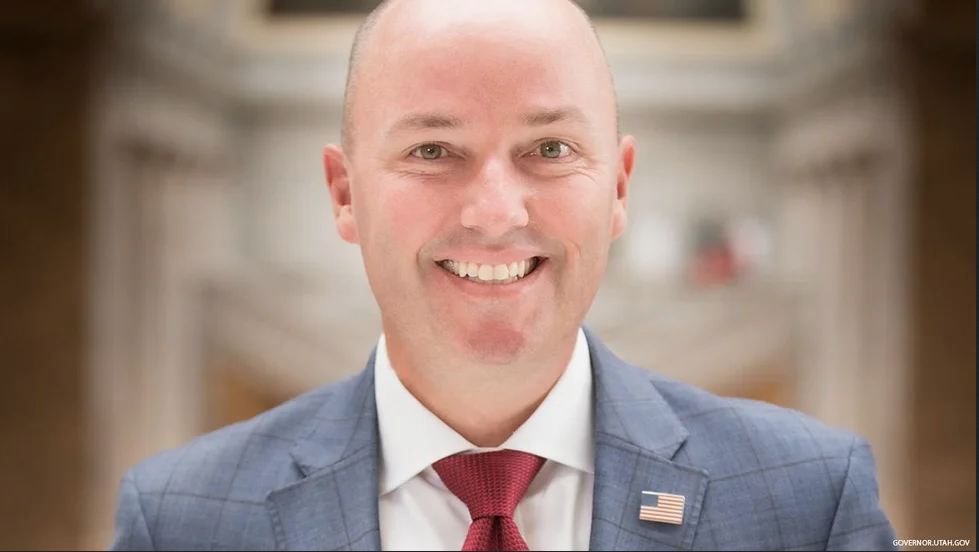
Utah has banned most gender-affirming care for minors.
Gov. Spencer Cox signed Senate Bill 16 into law Saturday.
Utah has banned most gender-affirming care for minors.
Gov. Spencer Cox signed Senate Bill 16 into law Saturday. The legislation bans gender-affirming surgeries, such as genital surgery — almost never performed on minors — and top surgery, and it places a moratorium on puberty blockers and other hormonal treatments for trans youth, except for those who’ve already been in treatment for gender dysphoria for at least six months.
Cox, a Republican, issued a statement:
“Legislation that impacts our most vulnerable youth requires careful consideration and deliberation. While not a perfect bill, we are grateful for Sen. Kennedy’s more nuanced and thoughtful approach to this terribly divisive issue. More and more experts, states and countries around the world are pausing these permanent and life-altering treatments for new patients until more and better research can help determine the long-term consequences.
“We will continue to push the Legislature for additional resources to organizations that work to help this important Utah community. While we understand our words will be of little comfort to those who disagree with us, we sincerely hope that we can treat our transgender families with more love and respect as we work to better understand the science and consequences behind these procedures.”
In reality, science supports these procedures, as do major medical groups, including the American Medical Association.
Both houses of the legislature OK’d the bill within the past two weeks. The Senate had approved it January 20, but it had to vote on the measure again Friday because of changes the House of Representatives made in passing it Thursday, The Salt Lake Tribune reports. The Senate OK’d it once more.
An earlier version of the bill said the moratorium would end after four years, but the House Thursday made the moratorium an indefinite one, the Deseret News reports.
Another change to the legislation is that it will go into effect immediately when the governor signs it. And it specifies that people who regret undergoing gender-affirming treatment as minors and want to withdraw their consent can bring malpractice lawsuits up until they turn 25.
Cox has been more supportive of trans people than some other Republicans. Last year, he vetoed a bill barring trans girls from participating in girls’ school sports, but the legislature overrode his veto and the bill became law.
However, he has “now caved to anti-equality extremists,” the Human Rights Campaign said in a press release.
Other states that have taken action against gender-affirming care include Alabama and Arkansas, where bans enacted by lawmakers are temporarily blocked while court challenges proceed.
Florida medical boards have banned this care for most minors, and the state has banned all Medicaid funding for it, regardless of the patient’s age.
In Oklahoma, a major hospital ceased providing the care because the state would have withheld funding otherwise.
Bills restricting such treatment are pending in 20 other states.
Passage of the Utah bill came despite a moving presentation Jan. 19 by Democratic Sen. Nate Blouin, who read a statement from his trans intern, Ari Webb.
“Transgender people have always existed,” the statement read in part. “For many years, we did our best to hide from the vitriol we face in public but now that we’re coming out and fighting for our rights, we’re seeing pushback like the bill in front of the body today that tries to deny our existence.”
Utah Senate Democrats issued a statement against the measure after its final passage, TV station KSL reports.
“Without question, we remain opposed to S.B. 16, especially with the addition of an immediate effective date and the serious consent and liability concerns that impact our health care providers,” the statement said.
“The devastating weight of this bill is felt by our trans children, our families, and our medical providers. As legislators, it is our responsibility to develop answers to these difficult questions, and the Senate Democrats are committed to continue working in this space toward compassionate, data-driven public policy,” the statement said.
Cathryn Oakley, HRC’s state legislative director and senior counsel, also released a statement.
“In signing this bill into law, Governor Cox has directly placed the LGBTQ+ youth he previously claimed to want to protect in harm’s way,” she said. “Denying transgender and non-binary youth – an extremely vulnerable group already – access to medically necessary, age-appropriate and scientifically supported medical care is dangerous, spiteful, and flies in the face of the recommendations of every major medical group in this country. “Parents, doctors, and transgender youth together discuss possible care and make the deeply individualized decision about what kind of care is most appropriate for each young person. Politicians with no medical training and no real understanding of the harmful impact these bans have on transgender people should have no say in how best practice, age appropriate care is delivered.”
Chase Strangio, deputy director for transgender justice at the American Civil Liberties Union’s LGBTQ & HIV Project, called the legislation “devastating.”
“This is a devastating and dangerous violation of the rights and privacy of transgender Utahns, their families, and their medical providers,” he said. “Claims of protecting our most vulnerable with these laws ring hollow when lawmakers have trans children’s greatest protectors — their parents, providers, and the youth themselves — pleading in front of them not to cut them off from their care.”
This article originally appeared on Advocate.com, and is shared here as part of an LGBTQ+ community exchange between Q Voice News and Equal Pride.
